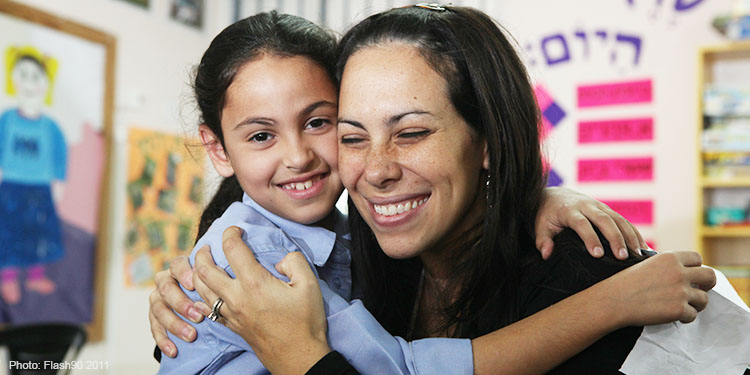Gifts of the Heart
The Fellowship | February 19, 2018

Moses said to the whole Israelite community, “This is what the LORD has commanded: From what you have, take an offering for the LORD. Everyone who is willing is to bring to the LORD an offering of gold, silver and bronze.” — Exodus 35:4–5
Most of us have been blessed with gifts from the people in our lives. Some have been expensive and others simple. Some we genuinely enjoy; others we pretended we liked. But the gifts we will always remember are the ones that were given from a place of deep love – even if it was nothing more than a handmade piece of “art” from a child in our lives. Those gifts are priceless.
In Exodus 35, we read about the construction of the Tabernacle, in Hebrew, mishkan, God’s temporary home. The Jewish sages point out the fact that the mishkan was never destroyed. Unlike the two Holy Temples, which were built as permanent structures, the mishkan never fell into enemy hands. When it was no longer needed (because the Temple was built), it was merely disassembled and stored away. Jewish tradition teaches that it was buried deep under the Temple Mount.
How could it be that God’s “permanent” home was easily destroyed, while the more vulnerable temporary house seemed invincible?
The sages credit the contributions given to the construction of the mishkan with its longevity. More specifically, they explain that it wasn’t what was given as contributions – God only asked for something from “what you have” — not anything extravagant. The power was in how the gifts were given. They were given from a “willing” heart. They were contributions made with love, and consequently, the best gifts possible.
In contrast, we learn that when the First Temple was constructed, many contributions came from Huram, king of Tyre: “So Huram finished all the work he had undertaken for King Solomon in the temple of the LORD” (1 Kings 7:40). The sages explain that Huram’s contributions were more about his own pride than his love for God. Since the Temple didn’t have the same amount of love in its construction, it was weaker, so to speak, than the mishkan, even though its physical materials may have seemed much stronger.
The lesson to be learned is that when it comes to giving — both to the people in our lives and for God’s purposes – we need to be just as attentive to how we give as to what we give. When we open up our wallets, we must first open up our hearts. That way, we will ensure that everything we contribute goes a long, long way and that whatever our gift makes possible will be strong and enduring. So whatever your gift is to others today, be it large or small, give it with love from a willing heart.
